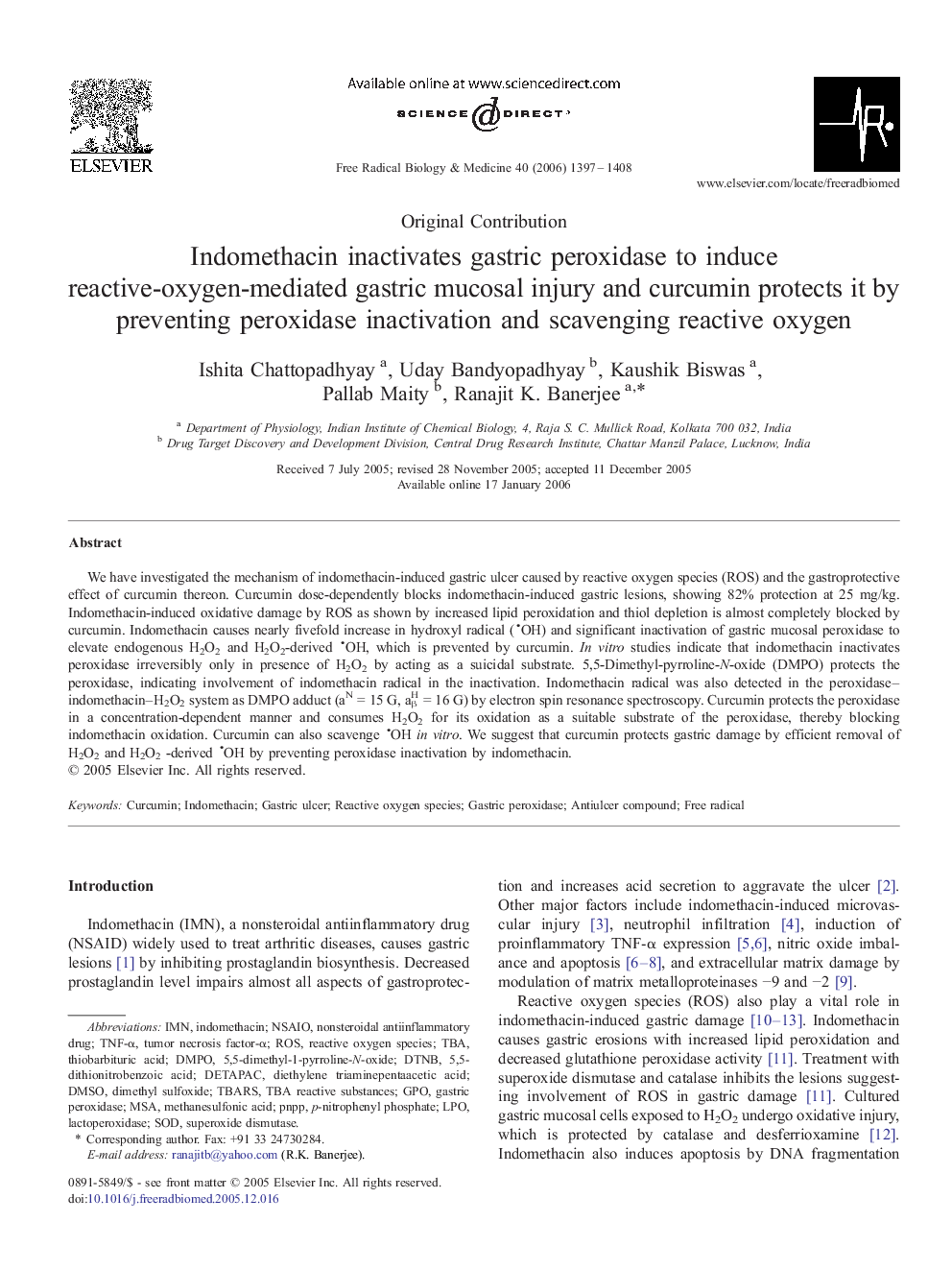| Article ID | Journal | Published Year | Pages | File Type |
|---|---|---|---|---|
| 1911587 | Free Radical Biology and Medicine | 2006 | 12 Pages |
We have investigated the mechanism of indomethacin-induced gastric ulcer caused by reactive oxygen species (ROS) and the gastroprotective effect of curcumin thereon. Curcumin dose-dependently blocks indomethacin-induced gastric lesions, showing 82% protection at 25 mg/kg. Indomethacin-induced oxidative damage by ROS as shown by increased lipid peroxidation and thiol depletion is almost completely blocked by curcumin. Indomethacin causes nearly fivefold increase in hydroxyl radical (OH) and significant inactivation of gastric mucosal peroxidase to elevate endogenous H2O2 and H2O2-derived OH, which is prevented by curcumin. In vitro studies indicate that indomethacin inactivates peroxidase irreversibly only in presence of H2O2 by acting as a suicidal substrate. 5,5-Dimethyl-pyrroline-N-oxide (DMPO) protects the peroxidase, indicating involvement of indomethacin radical in the inactivation. Indomethacin radical was also detected in the peroxidase–indomethacin–H2O2 system as DMPO adduct (aN = 15 G, aβH = 16 G) by electron spin resonance spectroscopy. Curcumin protects the peroxidase in a concentration-dependent manner and consumes H2O2 for its oxidation as a suitable substrate of the peroxidase, thereby blocking indomethacin oxidation. Curcumin can also scavenge OH in vitro. We suggest that curcumin protects gastric damage by efficient removal of H2O2 and H2O2 -derived OH by preventing peroxidase inactivation by indomethacin.
